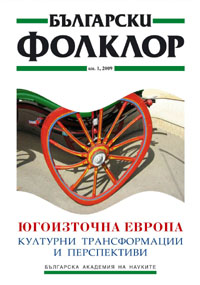Етничност, държава и достъп до природни ресурси в Югоизточна Европа. Случаят на рударите
Ethnicity, State and Access to Natural Resources in the Southeastern Europe. The Rudari Case
Author(s): Ștefan DorondelSubject(s): Anthropology
Published by: Институт за етнология и фолклористика с Етнографски музей при БАН
Summary/Abstract: This paper explores the mechanisms that shape access to natural resources in Bulgaria and Romania, both post-socialist countries. It points out that access to forests (as one of the most valuable natural resources in rural areas) is strongly shaped by ethnicity. Rudari, a Romanian-speaking minority group considered by both states as Roma, whose culture and history is deeply linked to work in the wood, have no forest holdings at all. In both countries the state policy of forest restitution based on historical justice let out those minorities that never had property rights over land and forest. However, this report is not too much about ethnicity itself – this subject needs more ethnographic description and further investigation – but about the way in which, in post-socialist situation proceeding land reform has seen historical lines between different ethnic groups re-drawn. The empirical evidence I collected through fieldwork in Romania (April-December 2004) and Bulgaria (July and October 2007) suggest that at the local level, land reform reinforced ethnic boundaries.
Journal: Български фолклор
- Issue Year: XXXV/2009
- Issue No: 1
- Page Range: 72-86
- Page Count: 15
- Language: Bulgarian
- Content File-PDF

